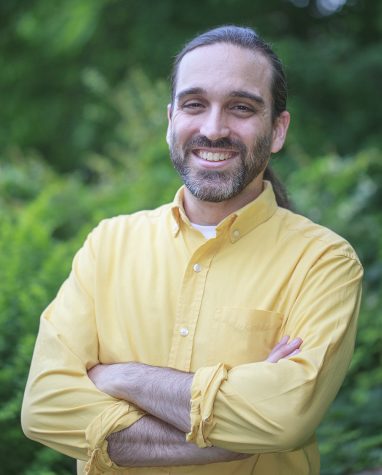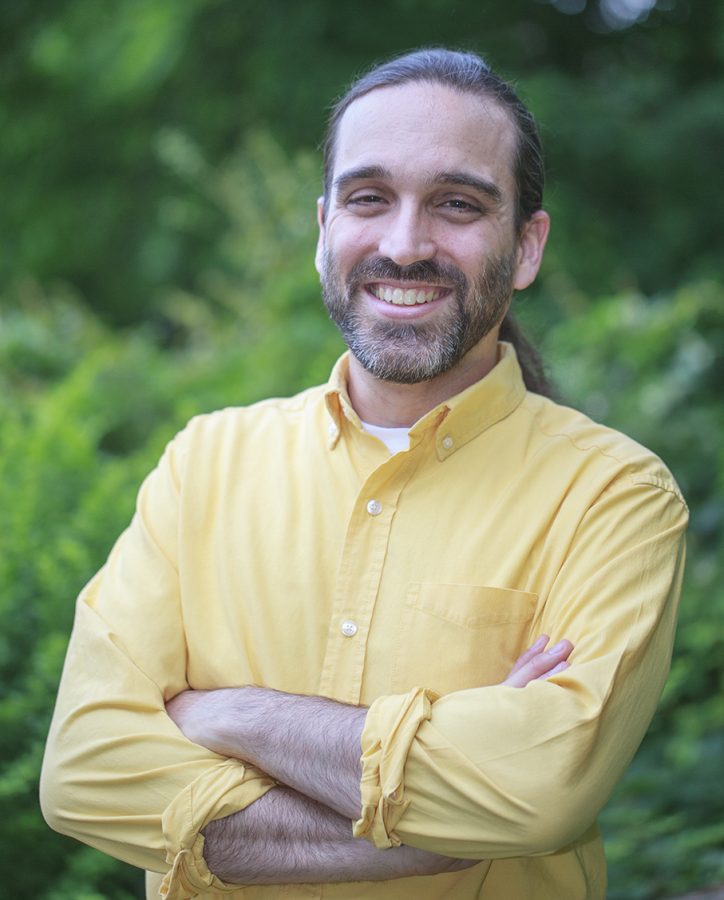Photo Courtesy of David Weinstein
David Weinstein
RF: What distinguishes you from the other ten School Committee candidates?
David Weinstein: I think we’re fortunate to have a really great pool of candidates, which includes a lot of varied experience including some people with experience in education. I have a career in education, in fact I’m the only candidate that has been a classroom teacher. I started my career with five years in the classroom, primarily teaching high school English but also K-12. I always taught in public schools, which I think is a particularly important type of experience to have as policy is enacted in the classroom. I have lived in Cambridge for 18 years and have two kids in the public schools, so I’m in the thick of it. I’m there not only for them but for all of the kids in the city.
RF: How do you think the School Committee could become more effective?
DW: I think that having more of a focus on how we can support teachers to build on currently successful initiatives and in places where there are challenges is important. As someone who’s been in the classroom, I have a good sense of some of the questions we need to ask. I think that the School Committee will be more effective if we are better able to connect with families. The School Committee needs to be a team where we are not afraid to challenge each other, especially when tackling really complex issues. That’s something I feel I’ve done throughout my career, so I will bring that approach.
RF: How are you aiming to close the achievement gap?
DW: It gets called the achievement gap, but I prefer to call it the opportunity gap because that brings the focus to what I believe is the issue, giving kids the opportunity to succeed. We need to make circumstances where all kids can achieve. Pretty much every priority I’ve outlined addresses the gap. At CRLS I really support heterogeneously grouped classes, although I see that there may be some exceptions. As a teacher, I taught heterogeneously grouped classes so I bring an understanding that you have to not only create that structure but build capacity to make it work. Research shows that class deleveling helps all kids do better, not just those who are already struggling. We have to build that capacity though: provide professional development, planning time, additional staff. I think that it’s the way to do it, but I think we have to do it right. I think that offering junior kindergarten and preschool to all kids will help. We have no time to waste in making sure we’re supporting teachers in heterogeneously grouped classes because not all teachers have experience in such environments.

RF: What do you see as a strength of Cambridge Public Schools that the committee could emphasize and what do you see as a weakness in CPS that the committee could fix?
DW: I think that the size of the district is a strength because it’s large enough that we can pilot things, we can have some different approaches as long as we make sure that the outcomes are the same for kids. There’s an opportunity for children to try different approaches and different schools. We are also not so big that it’s so unwieldy. Even more fundamental than that, We have a really excellent teaching staff and other professionals. We should make sure that when great things are happening in our schools we’re supporting them. When we push out an initiative that isn’t working, we need to make sure we look at the trade-offs and make sure it’s a thoughtful choice. This is a challenging community because there are so many needs that we are meeting in our schools, and holding ourselves to meet. That makes it more work, but it’s definitely work we need to be doing. I think we sometimes have different outcomes at different schools, and that’s something we need to always be aware of. As much as we need to be looking to improve outcomes for all students, if we see one group falling further behind, then we need to redouble our efforts. It should not be up to the families that are facing the most challenges or who’s kids are struggling the most to make it happen. We should be proactively supporting those families. I think it’s fabulous that we have family liaisons at all schools. I think we can do more to support them and I think we can be more clear as a district what our goals should be for that program. I think the people in those roles sometimes get placed in this position but it’s not really their job, we should have a ombud, often called ombudsman, program. These could be people in our community that kids or families could go to confidentially if they’re having a concern, without having to figure out if they’re comfortable bringing it to a principal or teacher. Even if that’s where they’re referred, it’s an important starting point. A lot of big institutions have that. I work at Brandeis University, we have a program like that and it’s very valuable.
RF: In what ways would you bring your in-classroom experience as a teacher to the policy-focused School Committee?
DW: I think in part it’s about understanding what questions to ask, and really thinking about understanding how policy plays out in the classroom, and making sure we’re putting in the right supports. Part of it is understanding that my experience in the classroom is only one person’s experience. If you work in the field, you can sometimes feel like you’ve got a handle on what it’s like, but people in those professions know that there’s a lot of different things that go on. I know about the pressures and challenges that teachers face that I did not, so understanding that. In combination with experience that other committee members bring. Just always keeping that bottom line of the classroom and how we’re moving the needle for kids to succeed.
RF: How would you like to ensure that our diverse student population is prepared for success once they graduate, in both college and the workforce?
DW: Everything that we’re doing, starting at preschool, should be building towards that. One area I would point to specifically is making sure that guidance counselors have reasonable caseloads and support to do their job well, and also support for internships and apprenticeship opportunities including for people who may not go to college. We should be including as part of our role post-graduation support, not just tracking how many kids are getting into college but also are they finishing college, how can we support them in college, are they finding pathways to careers. We have a lot of opportunities right here in Cambridge that are looking for talent of all kinds, and we don’t always take advantage of that as a district. I had a great experience as a student and a teacher to be part of a program that began at my high school called Wise Individualized High School Experience. In essence, it’s the second half of senior year program where students individualize projects for school credit. In some cases, it’s an opportunity to try out a career you’re interested in, or it could be an opportunity to do something you never thought you’d do. You benefit from not only the opportunity to learn something about something you might be interested in, but you also get the experience of being out in the world with the support of your school. I’d like to see, if not that specific program or something like it, so that every senior at CRLS has the opportunity to do a project like that. Some apprenticeship opportunities could be there as well.
RF: What specific community and family engagement measures would you like to implement?
DW: Something that we could so I think pretty easily would be to have some of the School Committee meetings at other locations throughout the city. I know the CRLS school council meets in other places, so that would just be one way to make sure that meetings are more accessible. We should also have meeting minutes and videos more immediately accessible online. On a personal level, as a School Committee member, I would be visiting every school and if there are particular issues making sure to visit schools where those are. I think there are in a way endless ways to do it. You need to proactively reach out. There are some language interpretation/translation supports but we need more. We could do better than google translate. It would cost more, but it would be worth it. We could have a phone translation services like some hospitals have so that families calling the schools know they are being understood.
RF: What should happen at the Upper School level to make sure that students enter the high school prepared to excel?
DW: I think we need to ensure that all kids are coming equally prepared, and I think we do that in part by talking with the 9th grade teachers about what they’re seeing as well as looking at other assessments. Every test has limitations, so I wouldn’t look at that by itself. I don’t think any of the schools are where we want to be, which is 100%. It may be that the tests are so flawed that they aren’t even looking at what we want to measure, but the ninth grade teachers will know and the eighth-grade teachers should know as well. We need to know numerically that we have the resources, staffing wise, and budget-wise, to jump in on the short-term as well as make long term adjustments when we find something isn’t working. We should make sure that the good things that were happening in the old upper school system have not been lost in the transition to the new system. It’s important as a district that we know where we’re coming from and where we’re going and make corrections as we go. I think it’s great that we have people on the School Committee who have experience with children going through the schools. I also think it’s important to have people like me, with kids going through right now. I will be looking at, what have we done, is there something we should be going back to that we’ve lost. More importantly, what do we need right now?
RF: Is there anything else you would like to say?
DW: I’m proud of Cambridge Public Schools, I’m just not satisfied. I think that sometimes people look at aspects of our schools in a negative light. I’m critical, I wouldn’t run for School Committee unless I thought there was work to be done. There is work to be done, but it is very important we remember that there’s a lot of great work happening and great people. We need to proactively understand what’s happening so that we’re able to address the concerns of people that aren’t able to bring it to us for whatever reason.
